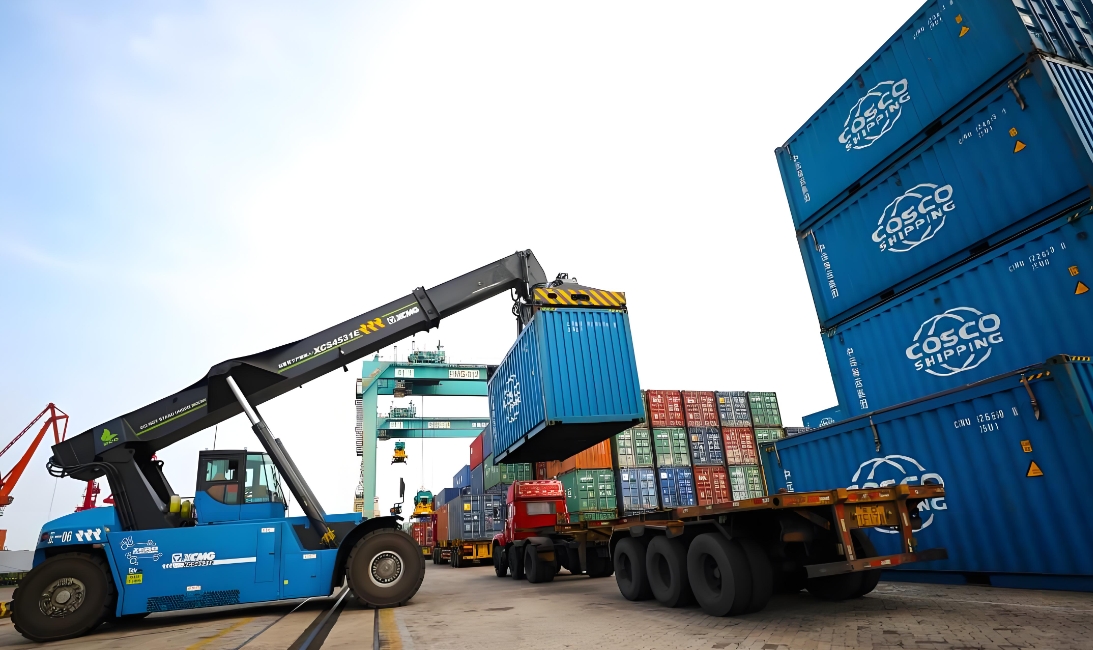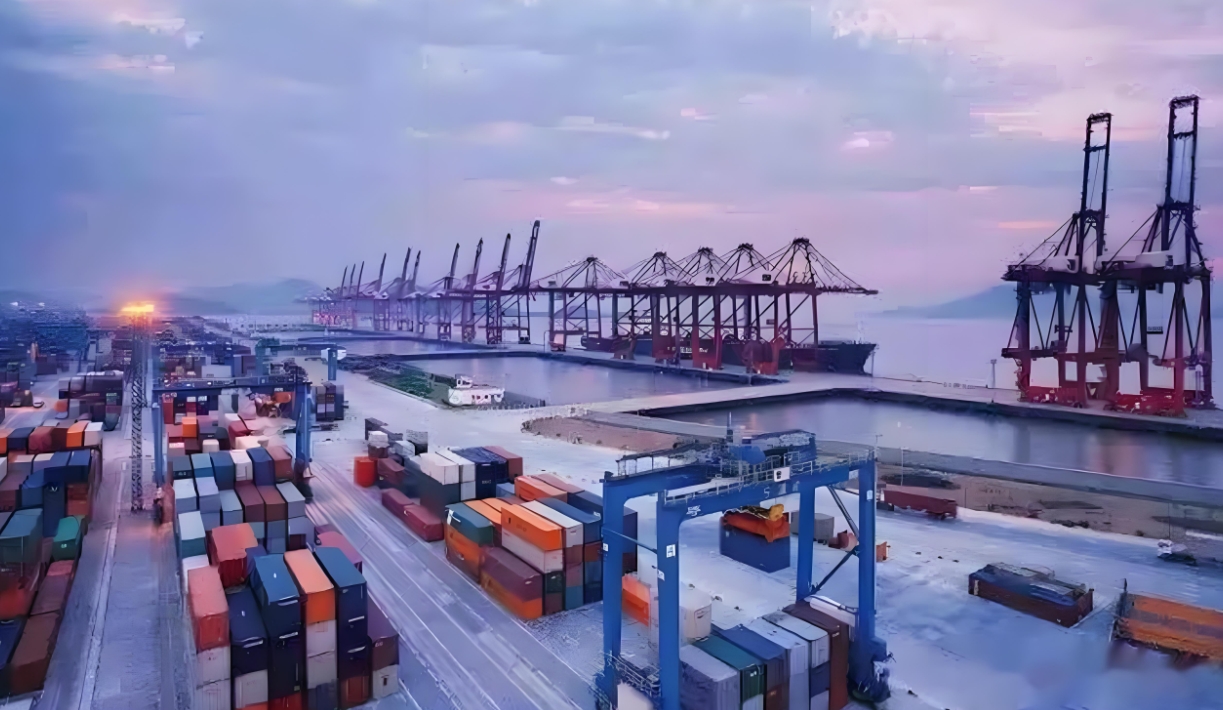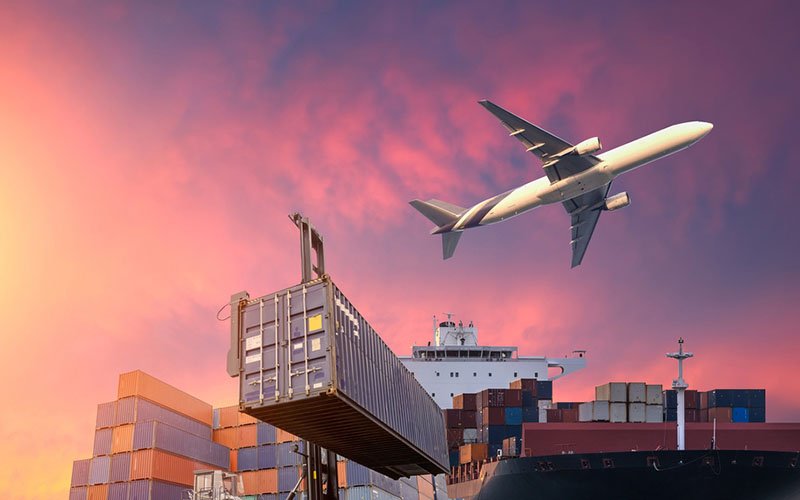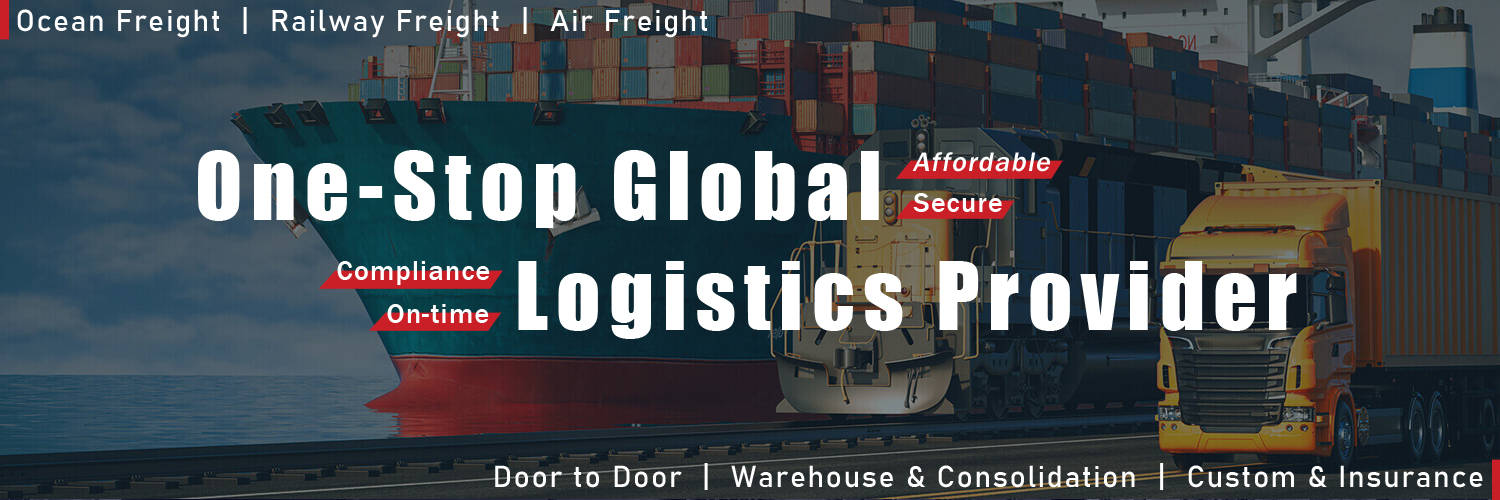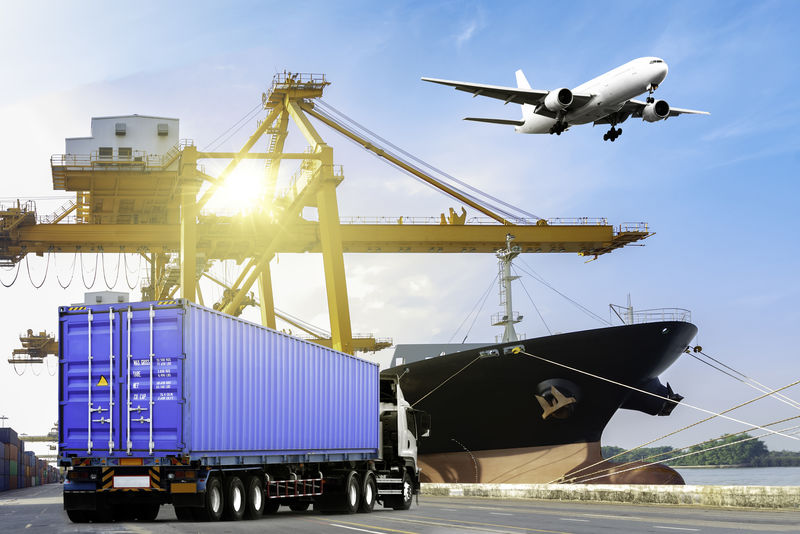Understanding the FCA Incoterm: A Detailed Guide for International Trade
The Vital Role of Incoterms in International Commerce: A Spotlight on FCA and the Importance of Freight Forwarders
International Commercial Terms, commonly referred to as Incoterms, form the foundation of global trade by delineating the duties and obligations of both purchasers and vendors. These standardized terms bridge the gap in cross-border understanding, minimizing conflicts and misunderstandings.
The FCA (Free Carrier) Incoterm stands out for its versatility, offering significant advantages to both parties involved in the trade. It is particularly pivotal for entities aiming to streamline logistics and effectively handle risk management. With FCA, sellers are tasked with delivering goods to a designated point, after which the buyer assumes control, taking on the transportation and associated risks. This well-defined allocation of tasks is why FCA is a favored option in the international arena, showcasing its suitability for a wide range of trade situations.
Here, the role of freight forwarding companies becomes paramount. They are instrumental in facilitating the smooth execution of FCA terms, ensuring that the handover of goods from sellers to buyers at the agreed location is seamless. Freight forwarders' expertise in logistics, customs compliance, and risk mitigation is essential in making FCA a practical and efficient choice for businesses engaged in global trade.
For more related logistics terms, please refer to: The 11 Common International Trade Logistics Terms
WHAT IS THE INCOTERM FCA?
| Aspect | Seller | Buyer |
|---|---|---|
| Delivery Point | Deliver goods to a location chosen by the buyer. | Take over goods at this location. |
| Risk Transfer | Risk transfers to the buyer once goods are handed over to the carrier. | Assumes risk from the moment of receiving the goods. |
| Export/Import | Complete export formalities. | Handle import duties and customs clearance. |
| Transportation | Not responsible for transportation beyond the delivery point. | Arrange and pay for transportation from the delivery point. |
| Insurance | No obligation to insure the goods for transit beyond the delivery point. | Responsible for insuring the goods from the point of takeover. |
FCA Explained: A Division of Duties
FCA (Free Carrier) is an Incoterm that facilitates clear delineation of responsibilities between the seller and buyer in international trade. It defines the point at which the seller’s risk ends and the buyer’s begins, ensuring a transparent transition of goods.
Seller’s Role in FCA
The obligation of the vendor is to transport the goods to a location designated by the purchaser, where the carrier selected by the buyer will assume responsibility for the shipment. This responsibility encompasses readying the goods for shipment and completing all required export procedures. The transfer of risk for the goods takes place at the agreed-upon location, not upon arrival at the ultimate destination.
- Duty: To deliver the goods to the predetermined location as agreed.
- Risk Handover: Takes place at the moment the goods are transferred to the buyer's designated carrier.
- Critical Detail: The seller is responsible for managing all aspects of the export process.
Buyer’s Commitment under FCA
The purchaser takes on the responsibility for the goods once they have been handed over at the agreed-upon location. From this juncture, the buyer is tasked with orchestrating all facets of the transportation process, which includes arranging the primary conveyance, securing insurance, and handling any import levies. This level of control empowers the buyer to tailor the logistics to their specific requirements and inclinations.
- Obligation: To organize the movement and coverage of the goods starting from the agreed location.
- Risk Oversight: The buyer assumes the risk from the instant the goods are collected.
- Important Note: The buyer is in charge of the principal carriage and insurance arrangements.
Practical Implications of FCA
In practice, FCA provides a framework within which both parties can strategically manage costs and risks. For example, an Indian company that purchases professional machinery from China may choose FCA to directly manage the shipping and insurance costs from the Chinese manufacturer's factory to its Indian factory, using contracts with carriers and insurance companies to reduce costs and ensure timely delivery.
This term is particularly beneficial when buyers have better access to shipping resources or prefer centralized control over cargo transportation, providing a combination of efficiency, cost management, and risk control in international shipping operations.
You may wish to read:Excellent freight forwarding service provider from China to India and Shipping from China to Mumbai (India)
Advantages of the Incoterm FCA
| Advantage | What It Means | Why It Matters |
|---|---|---|
| Flexibility | Both can choose how to handle shipping. Seller until delivery point; buyer after that. | Tailor shipping to needs, potentially saving time and money. |
| Clear Responsibilities | It’s clear who does what. Seller up to delivery; buyer handles transport and insurance. | Reduces chances of confusion and disputes. |
| Cost Control | Buyer can pick carriers/routes, possibly using discounts. | Helps manage and reduce shipping costs. |
Why Choose FCA for Your International Shipments?
The FCA (Free Carrier) Incoterm offers unparalleled flexibility and clarity in the complex world of international logistics. Let’s dive into why businesses across the globe are turning to FCA to streamline their shipping processes.
Unmatched Flexibility in Transportation
One of the standout advantages of FCA is the flexibility it affords both sellers and buyers in arranging transportation. This term allows the buyer to select carriers and routes that best fit their budget and timing requirements, offering a level of customization that can significantly enhance efficiency and reduce costs.
- Seller’s Perspective: With FCA, sellers are only responsible for delivery to a pre-agreed point, beyond which the buyer takes over. This setup means sellers can focus on what they do best—getting the goods ready for export without worrying about the complexities of international shipping.
- Buyer’s Control: Buyers gain the ability to negotiate directly with carriers, potentially securing more favorable shipping rates and choosing routes that align with their delivery schedules and budget constraints.
Clarity of Responsibilities
The clear demarcation of responsibilities under FCA significantly reduces the risk of disputes between parties. Each party knows exactly what they’re responsible for, from the point of delivery to the management of shipping and insurance.
- Risk Transfer: The moment the goods are handed over to the buyer’s nominated carrier, the risk shifts from the seller to the buyer. This precise point of risk transfer is agreed upon in advance, leaving little room for ambiguity.
Cost Control and Efficiency
FCA empowers buyers with the ability to control transportation costs and choose delivery routes that suit their logistical needs and financial goals. This can lead to significant savings and more efficient supply chain management.
- Real-World Impact: Consider a scenario where a buyer has negotiated bulk shipping rates with a preferred carrier. By opting for FCA, they can leverage these rates for their international purchases, directly influencing their bottom line.
In summary, the FCA Incoterm is not just a set of rules; it’s a strategic tool for businesses looking to optimize their international trade operations. Its flexibility, clarity, and cost-control capabilities make it a preferred choice for companies aiming to navigate the complexities of global logistics with ease and efficiency.
What to Watch Out for With the Incoterm FCA?
How Can the Delivery Location Impact Your FCA Agreement?
Choosing the right delivery location under FCA terms can significantly impact the success of your international shipment. The specificity of this location in the contract cannot be overstated. A vague delivery point can lead to misunderstandings, resulting in unexpected costs or delays. For instance, if the contract states “FCA Shanghai,” does it mean at the seller’s premises, a specific warehouse, or a port in Shanghai? Being precise—such as “FCA Shanghai Port, Terminal 2″—can save both parties time and money.
Understanding Fees: Who Pays for What?
Under FCA, the division of costs between seller and buyer is clear-cut, but only if both parties fully understand and agree on who pays for transportation, insurance, and additional fees. Misunderstandings here can erode profit margins. For example, if a buyer assumes the seller will cover initial transportation costs to the carrier, but the seller thought otherwise, disputes can arise. Always clarify these details in the contract to prevent any surprises.
Navigating Customs with FCA
Customs procedures can be a complex aspect of international trade and have a significant impact on the import and export processes under FCA. Deciding who is responsible for managing and paying customs procedures is crucial. Usually, the seller is responsible for export customs clearance, while the buyer bears import tariffs and taxes. However, if this is not clearly stated, it may result in delays and additional costs. For example, if an Indian company imports goods under FCA without designating a seller to handle export customs clearance in China, the buyer may unexpectedly find themselves responsible for these tasks and costs.
Essentially, paying close attention to delivery location, cost responsibility, and customs obligations when drafting FCA agreements can prevent potential disputes and ensure smoother transactions. Clear communication and detailed contracts are key to leveraging the advantages of FCA Incoterm while minimizing its challenges.
Practical Cases: The FCA Incoterm in Action
When Does FCA Shine the Brightest?
FCA (Free Carrier) provides unique advantages in specific scenarios where transportation control and risk management are crucial. Let's consider a scenario where a Chinese technology manufacturer ships components to a smartphone assembly plant in India. By choosing FCA, manufacturers ensure that their responsibility ends once the goods are handed over to the carrier at the designated port in Chidambaranar. This arrangement enables Indian factories to optimize transportation costs and schedules by selecting preferred carriers, highlighting FCA's flexibility and efficiency in cross-border supply chains.
You may wish to read:Shipping from China to Chidambaranar (India)
FCA Pitfalls: Lessons from Real-Life Challenges
However, not all FCA transactions can proceed smoothly. A common issue arises when there is ambiguity in the agreed upon delivery points. Imagine a Chinese furniture retailer and an India retailer reaching an agreement on the FCA agreement without specifying a location. The furniture was ultimately delivered to a distant warehouse, resulting in additional costs and delays. If a clear contract were signed stipulating that the "FCA agreement" would be delivered at the port of Mumbai, ensuring both parties have an accurate understanding of the delivery point, this issue could have been avoided.
In another case, a misunderstanding of tariffs resulted in a batch of goods being detained at the border. The buyer is a UAE importer and believes that the Chinese exporter will handle export customs clearance according to FCA terms. However, unless otherwise specified, in FCA transactions, responsibility has traditionally been borne by the buyer. A detailed contract that clearly defines customs responsibilities could have prevented delays and additional storage fees.
These examples emphasize the importance of clear communication and detailed contracts when using FCA. By learning from these situations, companies can leverage the advantages of FCA while avoiding its potential pitfalls, ensuring smoother international transactions.
Wrapping Up: Making the Most of FCA in Your Trade Strategy
Why is FCA a Linchpin in International Trade?
In wrapping up our discussion on FCA (Free Carrier), it’s clear that this Incoterm offers a unique blend of flexibility, clarity, and control in international shipping. By precisely specifying the delivery location, outlining clear responsibilities for customs and transport, and transferring risk at a designated point, FCA simplifies the export and import process, making it a preferred choice for many businesses.
Tailoring FCA to Your Business Needs
Choosing FCA should be a strategic decision based on your specific logistics needs and risk management preferences. If your business values control over the shipping process and seeks to manage transportation costs effectively, FCA presents a compelling option. However, it’s crucial to weigh the operational capabilities of your partner and yourself, ensuring that responsibilities like customs clearance and transport arrangements can be handled smoothly by the appropriate party.
The Role of Expert Advice in FCA Transactions
FCA presents numerous benefits, yet its intricacies can often necessitate specialized knowledge. It's advisable to seek the counsel of logistics specialists or international trade law professionals for bespoke guidance that aligns with the unique aspects of your transaction. These experts can offer priceless advice on refining your shipping tactics, creating unambiguous agreements, and circumventing the typical hurdles related to FCA and other Incoterm rules.
To sum up, FCA is a dynamic instrument within the arsenal of global commerce, empowering businesses to customize their shipping and risk management strategies to their benefit. With a thorough grasp of its subtleties and the strategic input of professionals as needed, firms can harness FCA to boost operational efficiency, cut expenses, and simplify their engagement in international trade.
FCA INCOTERM FAQ
WHAT DOES FCA STAND FOR IN SHIPPING TERMS?
FCA stands for Free Carrier, an Incoterm used in international trade to designate a point at which a seller delivers goods to a buyer’s nominated carrier.
WHO IS RESPONSIBLE FOR FREIGHT CHARGES UNDER FCA?
Under FCA, the buyer is responsible for the freight charges from the designated delivery point to the final destination. The seller is responsible for the cost to bring the goods to the agreed delivery point.
WHERE DOES RISK TRANSFER FROM SELLER TO BUYER IN FCA?
Risk transfers from the seller to the buyer once the goods are handed over to the buyer’s nominated carrier at the specified delivery location.
IS FCA SUITABLE FOR SEA SHIPMENTS?
Yes, FCA can be used for any mode of transport, including sea shipments. It is especially useful when goods are handed over before reaching the ship, such as at a port terminal.
HOW DOES FCA DIFFER FROM EXW (EX WORKS)?
Under FCA, the seller is responsible for export clearance and delivering goods to a nominated carrier. In contrast, with EXW, the buyer takes on more responsibility, including the loading of goods and all transportation from the seller's premises.
CAN THE DELIVERY POINT UNDER FCA BE INSIDE THE SELLER’S PREMISES?
Yes, the delivery point under FCA can be the seller’s premises. However, it must be specified in the contract. If the delivery occurs at the seller's premises, the seller is responsible for loading the goods onto the buyer’s transport.
WHO HANDLES CUSTOMS CLEARANCE IN FCA?
The seller is responsible for handling export customs clearance. The buyer assumes responsibility for import customs clearance and any associated duties and taxes.
IS INSURANCE MANDATORY UNDER FCA?
Insurance is not explicitly required under FCA for the seller. However, it is highly recommended that the buyer arranges insurance for the goods once they have assumed risk, especially for international shipments.
HOW SHOULD PARTIES SPECIFY THE DELIVERY LOCATION IN AN FCA AGREEMENT?
It’s crucial to specify the delivery location precisely in the contract, including details like the address or terminal within a larger facility, to avoid any ambiguity or disputes.
WHAT HAPPENS IF THE BUYER FAILS TO NOMINATE A CARRIER UNDER FCA?
If the buyer fails to nominate a carrier or the carrier does not pick up the goods as planned, the buyer may still be responsible for any resulting costs or risks, including storage fees or potential loss/damage to the goods after the agreed delivery time.
 English
English 简体中文
简体中文 繁體中文
繁體中文 Afrikaans
Afrikaans አማርኛ
አማርኛ Español
Español العربية
العربية Français
Français Dansk
Dansk Български
Български Беларуская мова
Беларуская мова বাংলা
বাংলা Português
Português Русский
Русский Afsoomaali
Afsoomaali فارسی
فارسی Türkçe
Türkçe كوردی
كوردی Deutsch
Deutsch 日本語
日本語 ไทย
ไทย Tiếng Việt
Tiếng Việt Italiano
Italiano עִבְרִית
עִבְרִית 한국어
한국어 Română
Română Nederlands
Nederlands Bahasa Indonesia
Bahasa Indonesia Shona
Shona



